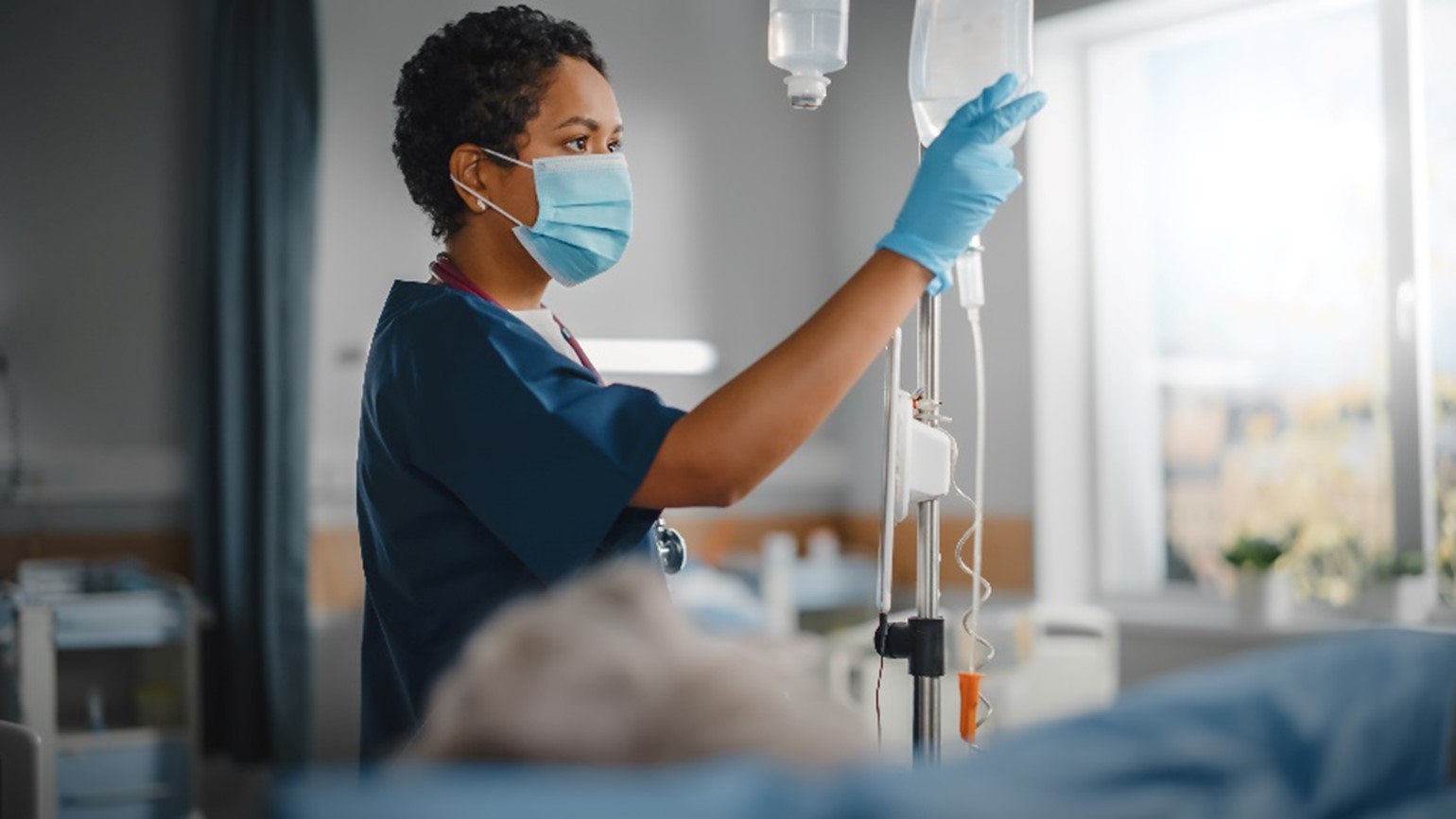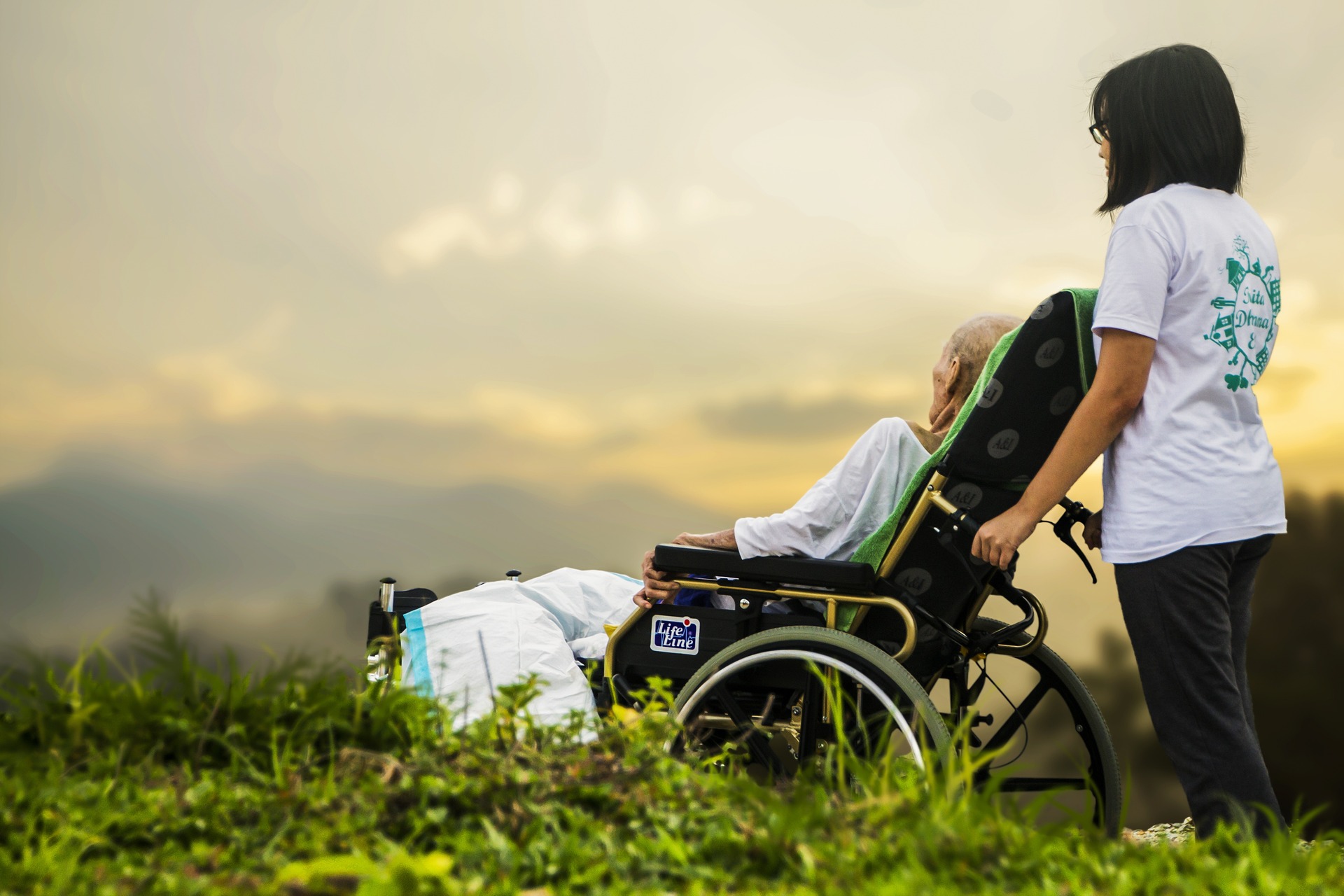Every workplace is legally obliged to have processes in place to identify and control infection hazards and risks.

Image by Gorodenkoff, on Shutterstock, Shutterstock licence
Every person in the workplace has responsibilities and obligations to control infection. This includes taking all reasonable steps to prevent the spread of infection and following instructions and procedures.
There are a series of established national standards and guidelines for the prevention and control of infection in
aged care and healthcare settings. These include:
| Standard/Guideline | Description |
|---|---|
| The National Safety and Quality Health Service (NSQHS) Standards | The NSQHS Standards must be met by Australian healthcare services. They also drive best practices in community settings such as aged care and disability services. Standard 3: Infection Control focuses on preventing healthcare-associated infections like MRSA, gastroenteritis, and influenza, aiming to reduce preventable infections and manage them when they occur. |
| Aged Care Quality Standards | Standard 3: Personal Care and Clinical Care refers to infection control, requiring staff to practice careful hygiene procedures and encourage residents to do the same, aiming to protect them from infections. |
| Australian Guidelines for the Prevention and Control of Infection in Healthcare | These guidelines offer a nationally accepted approach to infection prevention and control. They help develop detailed, setting-specific infection control procedures. Select here to read the guidelines. |
The Aged Care Quality and Safety Commission has also developed resources to support providers during the COVID-19 pandemic. These resources include:
- outbreak management guidance
- lessons learned by aged care providers experiencing outbreaks of COVID-19 in Victoria
- visitor access for residential aged care services
- infection control spot checks
- COVID-19 information.
 Read to learn more
Read to learn more
You can read to learn more about Dealing with infectious outbreaks on the Aged Care Quality and Safety Commission website.
Here are some other resources providing guidelines and standards for infection control and prevention:
- Australian Commission on Safety and Quality in Health Care (ACSQHC) Preventing and Controlling Infections Standard
- ACSQHC guidelines for hand hygiene
- Australian Guidelines for the Prevention and Control of Infection in Health Care
The Aged Care Quality Standards and infection control
All aged care service providers are required to prove on a regular basis that they meet the Aged Care Quality Standards (ACQS). These are the minimum requirements for a range of different types of support providers. All aged care workers must know and understand the standards well.
There are eight industry standards that must be followed by all aged care providers in order to meet the ACQS. Standard 3: Personal Care and Clinical Care refers to infection control.
Under this standard:
- Organisations are expected to assess the risk of infections and take steps to prevent, detect and control the spread. If the transmission of an infectious disease starts to occur, your service must increase their vigilance and response.
- Your service must appoint an Infection Prevention and Control (IPC) lead and provide training to all staff around infection prevention and control.
- When there is risk of infection being introduced to a facility, such as COVID-19, gastroenteritis or influenza, staff and visitors must be screened before entry.
- Aged care workers must have influenza and COVID-19 vaccinations and your service must keep records of these vaccinations. They also need to promote the benefits of the vaccinations to you.
- You must be supported to understand how to reduce the risk of increasing resistance to antibiotics.
- Your service must tell government authorities about outbreaks of infectious diseases.
 Read to learn more
Read to learn more
Find out more about the ACQS Standard 3: Personal Care and Clinical Care.
Worker responsibilities
Support workers are often the most important link in infection control procedures because they regularly have direct contact with clients and residents.
Infection control policies and procedures outline the ways that you can minimise the potential of infection for yourself and the people you support.
Part of your responsibility includes helping the people you support to follow recommendations for preventing infection. This involves reminding and helping clients and residents to wash their hands before entering and after leaving communal spaces, such as day rooms, and to help them to maintain good hygiene practices, such as daily hygiene routines.
Duty of care
Every worker has a duty of care, or responsibility, to act in a reasonable way to protect or at least not cause harm to other persons or their property, within your job role and training.
If you identify that an individual or another person is at risk of harm from infection, you are legally responsible to act in a way that minimises this risk. Supervisors, managers and more experienced staff will have a higher level of responsibility than less experienced staff.

Image by truthseeker08, on Pixabay, Pixabay Licence
In respect to infection control, your duty of care includes the following actions:
- Never leave a person lying or sitting in soiled clothes or incontinence pads.
- Regular checks are important if the person is not able to communicate this to you. If they do let you know that they are soiled, respond immediately. Leaving a person for long periods with their skin in contact with urine or faeces is not only uncomfortable, but can lead to rashes, infections and breaks in the skin.
- Attend infection control training.
- Follow workplace cleaning procedures correctly.
- Take all precautionary measures to prevent cross-infection, including:
- Hand hygiene
- Correct use of personal protective equipment (PPE).
When in contact with COVID-19, gastroenteritis and influenza, support workers have additional responsibilities:
- All aged care workers must be immunised against COVID-19 and influenza. There are very few exceptions permitted. This also applies to home, community and disability workers in many settings.
- You must be vigilant in stopping the chain of infection at all points of contact or potential contact during an outbreak, or a potential outbreak. This includes washing your hands and wearing PPE, according to the instructions you are given.
- You must report hazards or risks for infection as soon as you become aware of them. This includes reporting signs of fever or respiratory illness in clients or residents.
- You must report breaches in policies, such as when a staff member is handling body fluids without gloves. Reporting helps to prevent the incident happening again, and it highlights the need for additional training and support.
- You have the responsibility to stay home when you are unwell.
- If you are concerned about an infection control risk, let your manager
know.
- Speak up if you need more training in infection control practices or if you do
not have adequate access to PPE or other equipment necessary to follow policies.
Manager responsibilities
Your managers have a very important duty of care to you and the people you support, by making sure that you have the training and resources you need to work safely.
 Select to learn more
Select to learn more
Select each bar to expand and reveal further information on the responsibilities of managers.
Infection Prevention and Control Leads
All residential aged care services must appoint at least one nursing staff member as an IPC lead. This person helps to lead other staff in preventing and responding to infectious diseases, including COVID-19 and influenza. The IPC lead must work onsite in the facility and they must have completed specific training, including COVID-19 training.
 Read to learn more
Read to learn more
Read Infection Prevention and Control Leads to learn more about the responsibilities of IPC lead personnel in aged care residences.
 Check your understanding
Check your understanding
Select the correct response and select ‘Check’ to see if you are correct.
Background Colour
Font Face
Font Kerning
Font Size
Image Visibility
Letter Spacing
Line Height
Link Highlight
Text Colour